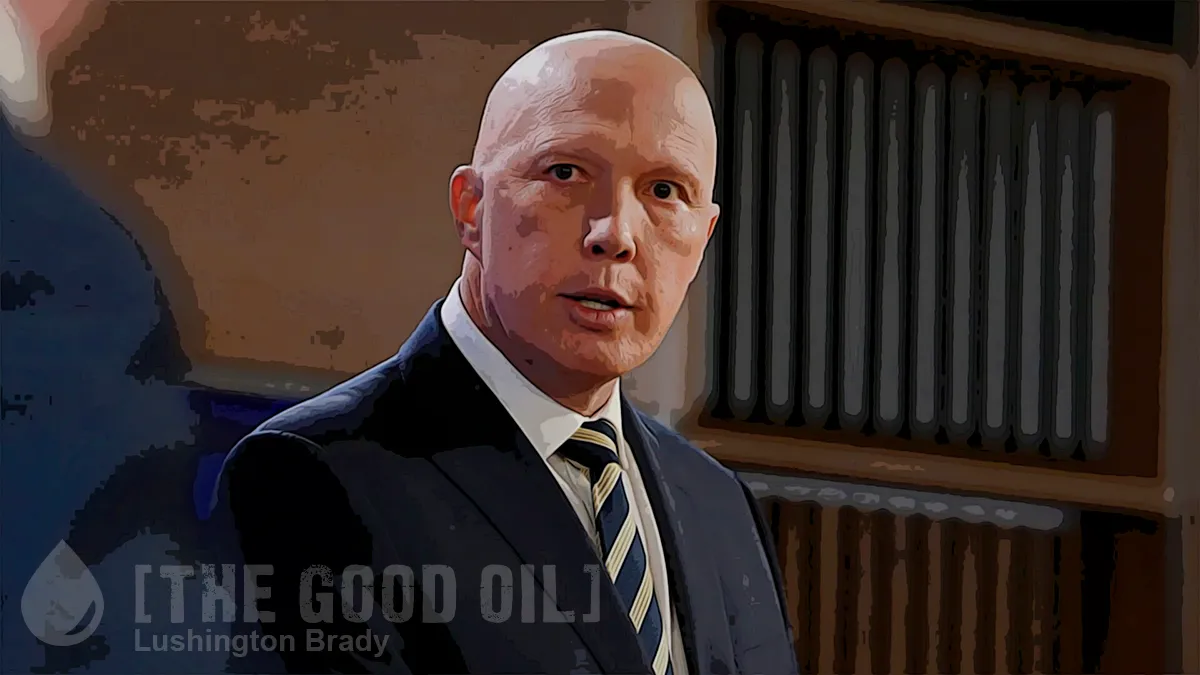Table of Contents
There is an increasing sense that it’s a question of when, rather than if, Anthony Albanese will become the first one-term government in Australia for nearly a century. For the past year, nothing Albanese has tried has made any difference to the inexorable downward spiral of a government already elected on one of the smallest votes in the party’s history.
Which then leads to the question: what kind of PM would Peter Dutton make?
Just as hubris is too often the downfall of politicians who think the next election is in the bag – just ask John Hewson and Bill Shorten – history is littered with brilliant opposition leaders who fell flat as PMs. Tony Abbott pulled off a stunning achievement in opposition, taking down one of the most popular PMs in recent history and leading the coalition to a bee’s dick short of victory just one term after a landslide defeat. Were it not for two LINO turncoats, Abbott would have been PM in 2010, rather than 2013.
But having demolished Kevin Rudd and Julia Gillard, Abbott ended up at the bottom end of time in the PM’s job, serving just a few days short of two years. Gough Whitlam, for all his demigod status in the Labor party, barely lasted a year more than Abbott. Whitlam’s fall was arguably more devastating because he took the Labor government with him, while the coalition held on to government for six years after Abbott’s departure.
Whitlam crashed and burned precisely because he lived up to his promise as a far-leftist. While Abbott became a victim of the same media-left derangement that would later subsume Donald Trump, unlike Trump he largely failed to inspire loyalty on the right because he was widely seen as having betrayed the conservative promise of his opposition leadership.
Dutton has a choice. Is he going to be happy just tinkering around the edges, or will he go big on the issues that really matter?
As opposition leader, Dutton has made some brave, principled conservative decisions. Opposing the racially divisive Voice referendum, standing up for Afghanistan veterans, pushing back against the Climate Cult and bringing the issue of nuclear power into the adult discussion and standing firmly with Israel while Labor and the Greens pander to rising anti-Semitism. Cutting migration is another big winner with a previously disaffected conservative base.
But, where will he stand on the issue of rampant state authoritarianism and censorship?
Surely, next to stopping a world war and killing the pandemic planning industry stone dead, this is the biggie for any incoming government.
The tyranny of the State grows everywhere, by the day.
Here, the portents are not so good. Recently his three senior senators all voted against – yes, against – an inquiry into pandemic governance.
This was unspeakable, and let us assume it was done with Dutton’s approval. Certainly, with his knowledge. Same old Liberals, we must conclude.
By which, we mean the so-called ‘moderates’ (in reality, dripping-wet ‘progressives’ in blue ties) who’ve done so much to alienate the Libs’ base.
Is he going to be happy just tinkering around the edges, or will he go big on the issues that really matter?
Righting the sinking ship that is our democracy and restoring fundamental freedoms and rights to individuals and freely associating groups.
This is core Liberal Party business, one would think […] Here is an issue, a hill on which to die. Whether Dutton can break free of the Liberal Party’s recent past tilt at stakeholder tyranny is his moment of truth.
And whether he can bring along the wets as well will be the measure of the man.
The acid test is the Albanese government’s raft of alarming ‘e-safety’ legislation. The coalition voted against the first tranche, the Digital ID Bill. Still, the bill passed, where the similar ID Card in the 1980s triggered a double-dissolution election that nearly brought down the popular Hawke government.
As Albanese prepares the next onslaught, the Orwellian ‘Misinformation’ Bill, how passionately the Dutton opposition fights such Thought Police legislation – or otherwise – may be a harbinger of what to expect from an increasingly likely Dutton government.







